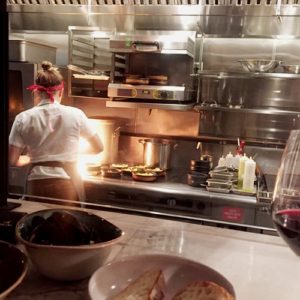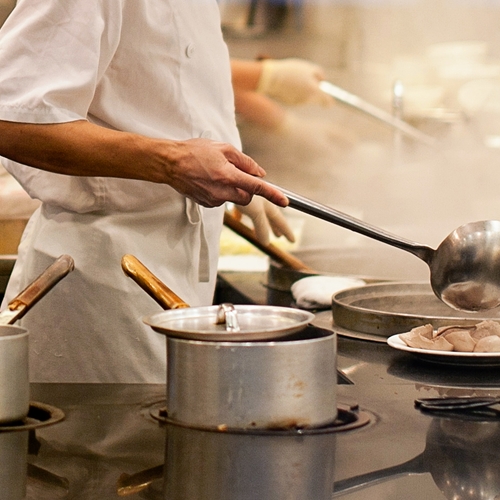
Whether you want to start up your very own bakery, drive a food truck cross country or run a quaint sushi cafe, there is one thing all restaurants require: proper equipment. From stoves and sinks to steam tables and prep stations, the right equipment is a vital component of just about any eatery. it’s important to know not only what kind of equipment to buy, but how to maintain these instruments. For culinary graduates looking to own a restaurant in the near future, here are five essential tips for all things equipment related:
“Commercial-grade is durable and meets local health codes.”
1. Go commercial grade
Depending upon the supplier, you may have a few different options available when it comes to buying restaurant equipment. Choosing commercial-grade equipment is more important than buying all-new pieces. Not only are these more durable and built for the sizable demand of your average restaurant, they meet the standards of most local health departments. Some of these agencies won’t even evaluate a restaurant without commercial-grade equipment. Most equipment should be marked if it meets the commercial standards.
2. Be a careful consumer
A proper budget is the cornerstone of any successful restaurant. Make sure you never spend more than you absolutely have to, and that’s doubly true for equipment. It’s important, then, to do your research and compare prices whenever possible. Never go with the first available item, no matter how cheap it may be. You’re going to need these pieces for some time, and you have to make sure they won’t break down after six months. Part of this process is also considering the materials of each piece and the construction of everything from plate warmers to a new stove.

3. Consider your utilities.
Just as important as the equipment itself is the utilities. Without water or gas, for instance, many of your new devices won’t work at all. It’s essential, then, to study the utilities as they all relate to every piece of equipment. What kind of power demand does that new warmer require? Or, what’s the optimal water pressure and temperature for that new standalone sink? As an extension, you should also have some idea of the cost of each utility, which can vary between neighborhoods. Knowing these tidbits will ensure that you make the most effective choice possible.
4. Perform your due diligence
Whenever you receive a new piece of equipment, it’s always a good idea to do a thorough inspection. Check for any external damage, like cracks in the surface or chipped and broken glass. From there, do a test run to make sure everything is in tip-top shape. If there are any issues, that’s when you’ll be thankful you got a warranty. Machines tend to break down, especially in a fast-paced
“Warranties can save you thousands of dollars in repairs.”
restaurant setting. Having warranties in place can protect you from needlessly spending thousands of dollars to replace equipment. Just make sure you know the exact terms of any warranty you have in place.
5. Establish new partnerships
Part of buying high-quality restaurant equipment is working with a truly reputable supplier. When you meet with any supplier, it’s important to ask questions, no matter how simple that might seem. The more information they can provide about the various pieces, the more likely you’re doing business with someone respectable. This supplier should be someone who isn’t just about selling you a product, but forming a long-term partnership. You want an ally you can turn to for years as you maintain each piece and search for new stoves, sinks, etc. when they become irreparable.


